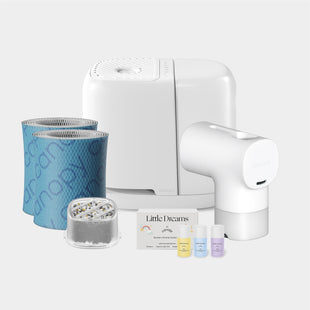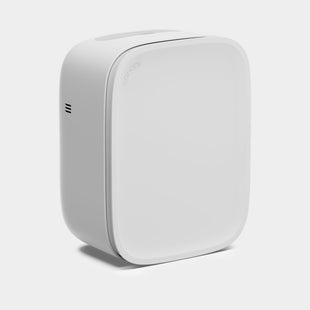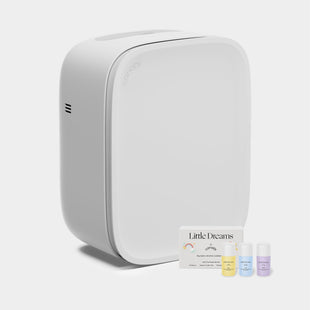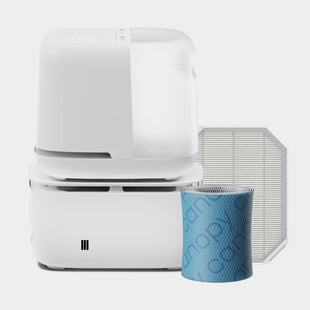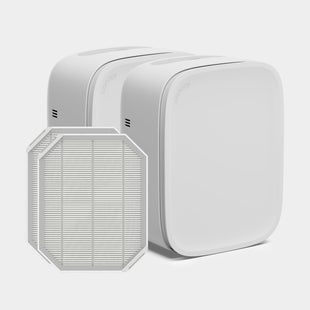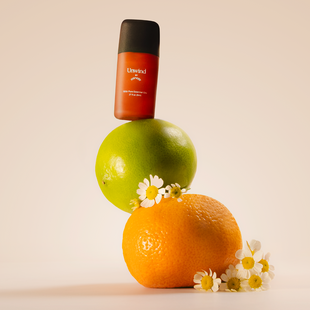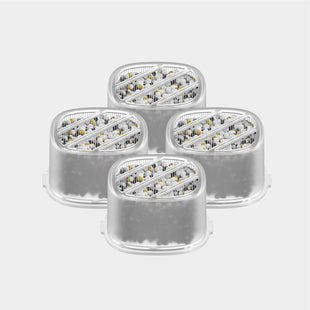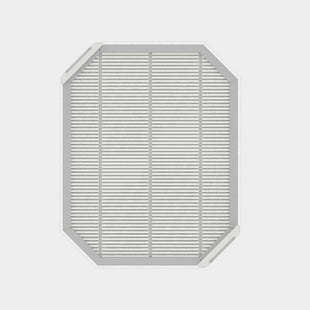This content has been reviewed and updated on July 31, 2023.
The shower head is a bathroom fixture that often gets overlooked unless there are water pressure problems. But it plays an important role—in addition to helping regulate the consistency and intensity of the water flow, the shower head contributes to your overall comfort when sudsing up. If your skin has been feeling tight and itchy, or your hair has started to look dull and frizzy, it might be time to switch to a filtered shower head. The following guide explains how it compares to a standard model and the numerous benefits water filtration has on skin and hair health.
Standard vs. Filtered Shower Heads
What Is a Standard Shower Head?
A fixed shower head is a wall-mounted apparatus with adjustable components, so you can fine-tune the water height and angle and modify the spray patterns.
With a handheld shower head, it’s easier to access hard-to-reach areas using the moveable hose. A dual shower head includes both fixed and handheld components.
Although modern shower heads have adjustable, multifunctional features, the fixtures can’t improve water quality.
How Do Filtered Shower Heads Work?
Filtered shower heads are similar to their standard counterparts, as fixed, handheld, and dual options are available. An in-line filter is a cartridge installed between the existing shower head and water line, while a built-in filter is part of the shower head assembly.

Filtered shower heads keep grime out of your bathing water through adsorption. When water moves through the filter’s carbon media, it draws out the impurities in the water. The pollutants stick to the carbon instead of coming from the showerhead with the water supply.
The filter can eliminate the sulfur smell that gives well water an unpleasant aroma that clings to your skin and hair, as well as lead and heavy metals that can cause headaches, lethargy, and additional health concerns when ingested.
How Filtration Benefits Skin & Hair
Helps Dechlorinate Water
Keeping water free of chlorine is one of the leading shower filter benefits. Commonly used as a tap water disinfectant, the chemical removes natural oils from your locks. This leaves the strands dry, dull, dehydrated, brittle, and prone to breakage.
Washing hair in chlorinated water changes its color, too. Dye pigments in color-treated hair oxidize when exposed to chlorine. The same happens to naturally blonde and other light-color tresses. When the color oxidizes, hair is left with a greenish tint.
Chlorine also has a drying effect on the skin and can worsen eczema and other skin conditions.
Keeps Dissolved Minerals Away From Skin and Hair
Hard water can wreak havoc on your hair as calcium, magnesium, and other dissolved mineral deposits cling to the strands. Hair then can’t absorb moisture, which can cause split ends, breakage, and frizz.
Shampoos and other cleansers won’t lather or rinse clean in hard water, either. This can lead to a buildup of products and soap scum that weighs down hair and irritates the scalp.
Hard water can affect your complexion, too. Soaps and shower gels won’t wash away easily in hard water. The residue and minerals can clog your pores, leading to breakouts.
State-of-the-art filtered shower heads can remove dissolved minerals from bathing water to help you avoid these concerns.
Canopy is your choice for reimagined household devices that effortlessly optimize your home for beauty and wellness, from your bedroom oasis to your active family spaces. And we’re ready to help you upgrade one of the most important parts of your routine—the shower. Our new easy-to-install filtered shower head reduces dissolved minerals, added chlorine, and other contaminants in your household water, providing clean water that supports healthy skin and hair. Say goodbye to dull skin, brittle hair, and flaky scalp and hello to healthy skin and scalp and longer-lasting hair color.









